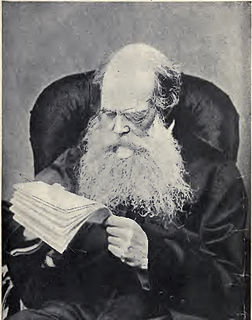A Quote by Scott Westerfeld
The world rests upon a turtle, which itself stands on the back of an elephant!” Alek tried not to laugh. “Then what does the elephant stand on, madam?” “Don’t try to be clever, young man.” She narrowed her eyes. “It’s elephants all the way down!
Related Quotes
There is an Indian story -- at least I heard it as an Indian story -- about an Englishman who, having been told that the world rested on a platform which rested on the back of an elephant which rested in turn on the back of a turtle, asked (perhaps he was an ethnographer; it is the way they behave), what did the turtle rest on? Another turtle. And that turtle? 'Ah, Sahib, after that it is turtles all the way down
But as the work proceeded I was continually reminded of the fable about the elephant and the tortoise. Having constructed an elephant upon which the mathematical world could rest, I found the elephant tottering, and proceeded to construct a tortoise to keep the elephant from falling. But the tortoise was not more secure than the elephant, and after some twenty years of very arduous toil, I came to the conclusion that there was nothing more that I could do in the way of making mathematical knowledge indubitable.
Stephen Hawking's A Brief History of Time tells the story of a cosmologist whose speech is interrupted by a little old lady who informs him that the universe rests on the back of a turtle. Ah, yes, madame, the scientist replies, but what does the turtle rest on? The old lady shoots back: You can't trick me, young man. It's nothing but turtles, turtles, turtles, all the way down.
Suppose you came across a woman lying on the street with an elephant sitting on her chest. You notice she is short of breath. Shortness of breath can be a symptom of heart problems. In her case, the much more likely cause is the elephant on her chest. For a long time, society put obstacles in the way of women who wanted to enter the sciences. That is the elephant. Until the playing field has veen leveled and lingering stereotypes are gone, you can't even ask the question.
On the other couch a women sits with a young boy looking through a picture book about Babar the Elephant. When I find a magazine and I lean back to start reading it, I can see the women watching me out of the corner of her eye. She moves closer to the child and she leans over and kisses his forehead. I know why she does it and i don't blame her.
I saw a dead elephant in one of Kenya's natural reserves. Around her were footprints of her baby elephant. This was just so sad, as three days before, perhaps the mother was still taking the baby around to play and to drink water. In her mind, she probably was thinking they had a life of decades to be together. However, the poaching happened so fast and everything collapsed. Without the protection of the mother, the baby elephant is likely to die too. That moment changed me.
This is what metaphor is. It is not saying that an ant is an elephant. Perhaps; both are alive. No. Metaphor is saying the ant is an elephant. Now, logically speaking, I know there is a difference. If you put elephants and ants before me, I believe that every time I will correctly identify the elephant and the ant. So metaphor must come from a very different place than that of the logical, intelligent mind. It comes from a place that is very courageous, willing to step out of our preconceived ways of seeing things and open so large that it can see the oneness in an ant and in an elephant.
Pearl rolled a tiny pink speck in her fingers, possibly part of Rose's new leg that I'd tried so hard to make a good match. Pearl laughed and flicked it away as if it was snot out of her nose. I suddenly couldn't stand it. I rushed at her.She saw I wasn't playing around. She ran for it but I caught up with her along the landing. I punched her hard in the chest and she staggered back wards - back and back, and then she wobbled and went right over, down the stairs.
The mind is divided, like a rider on an elephant, and the rider’s job is to serve the elephant. The rider is our conscious reasoning-the stream of words and images of which we are fully aware. The elephant is the other 99 percent of mental processes-the ones that occur outside of awareness but that actually govern most of our behavior.



































